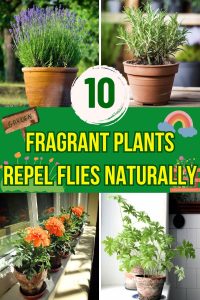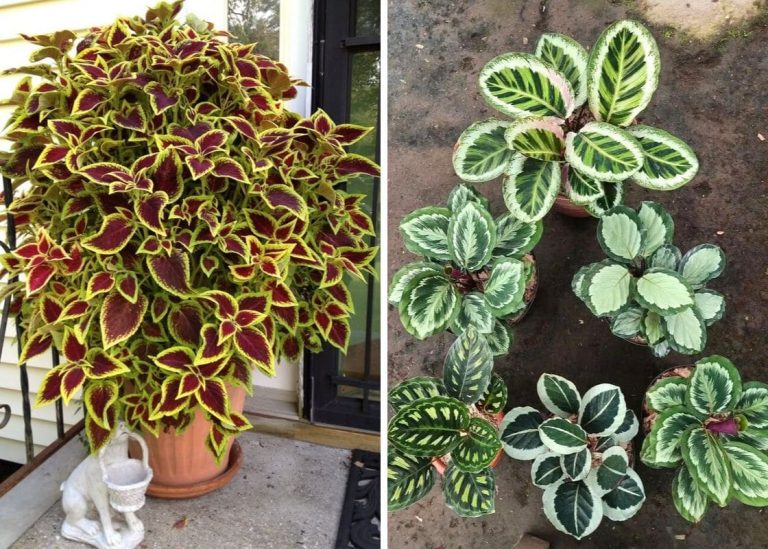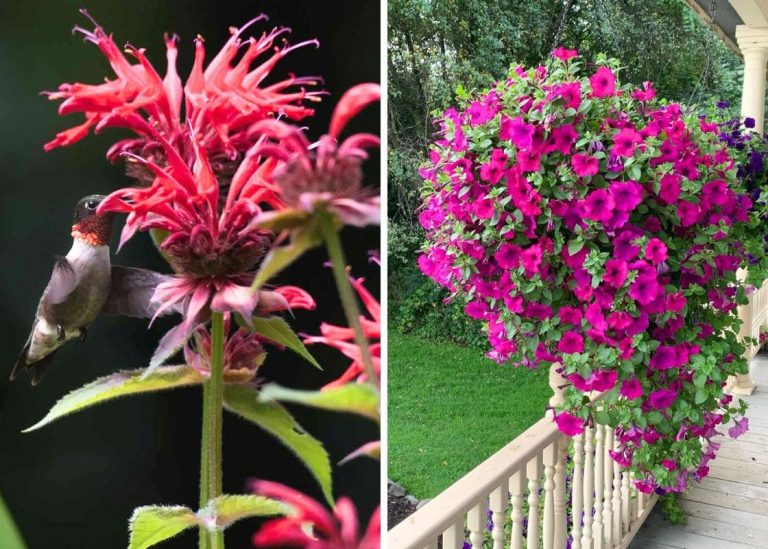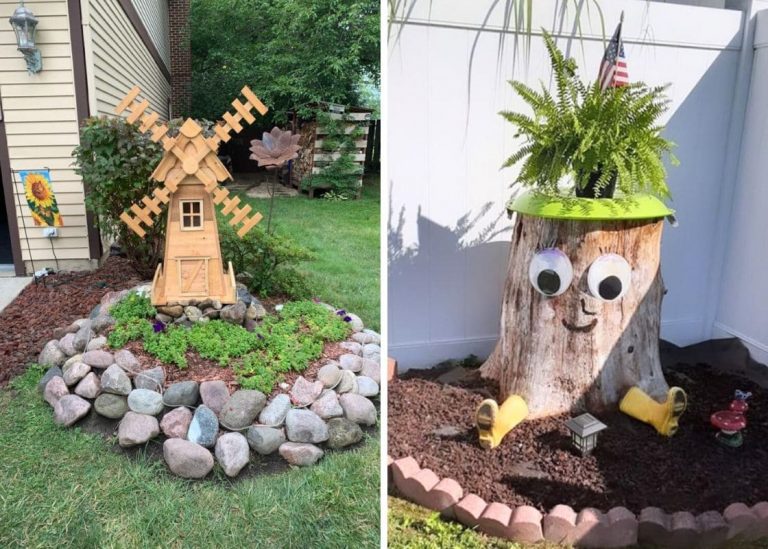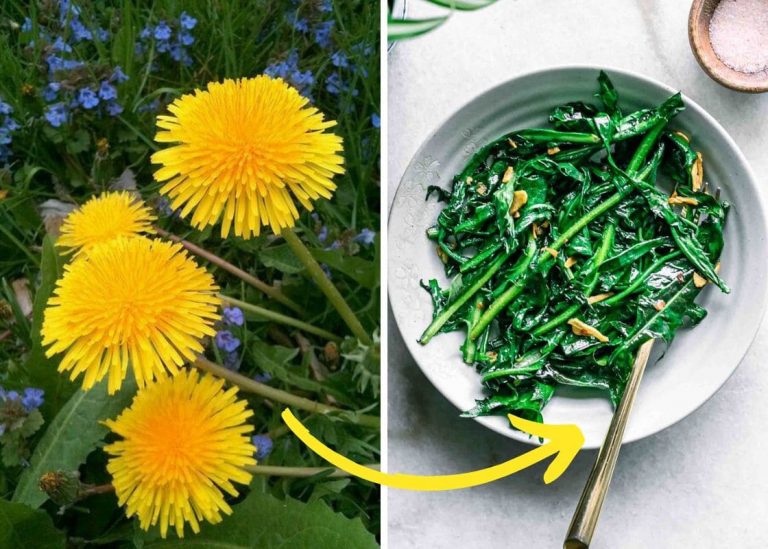Top 10 Fragrant Plants That Naturally Repel Flies
I was setting the garden table for a birthday lunch when I realized I wasn’t alone. Flies buzzed around the lemonade, dipped greedily into bowls of berries, and made a mockery of my plans for an elegant outdoor feast.
One of my guests chuckled as she handed me a pot of mint. “Don’t swat them,” she said, “plant your defenses.” That little gift sparked a transformation.
I’ve woven fragrant plants throughout my garden and patio. Not only do they keep flies at bay without a single chemical spray, but they also fill the air with scents so lovely that guests now linger longer, breathing it all in.
Let me share my favorite fragrant defenders — plants that look good, smell better, and work quietly like little garden guardians.
#1. Basil

Every year, I keep pots of basil scattered along the patio and near kitchen windows. Their lush green leaves and spicy scent seem to throw a protective bubble around our outdoor spaces.
Basil thrives best in sunny spots with rich, well-drained soil. Crush a few leaves now and then between your fingers, and the intensified aroma sends flies packing — while offering the perfect excuse to whip up a fresh pesto.
#2. Lavender

The drift of lavender blooms under the sun has always felt like a gentle lullaby. But while it soothes me, it sends flies scrambling for cover.
Lavender loves full sun and dry soil. I like tucking dried sprigs into kitchen baskets and even tying little bundles by the windowsills indoors — a simple, beautiful shield with the bonus of calming every room it touches.
#3. Mint

I learned quickly that mint is a double-edged sword — refreshing and rampant! Still, its sharp, clean scent has kept doorways and picnic tables blessedly fly-free.
To avoid letting mint run wild, I grow mine in pots tucked along paths and near outdoor seating. A few crushed leaves on a warm day release a fragrance that’s practically a natural force field.
#4. Rosemary

There’s a rosemary bush at the corner of my vegetable beds, tough as leather but generous with its gifts.
Its sharp, piney scent carries on the wind, confusing flies and clearing the space. Rosemary loves heat and dryness, so I place potted plants around the grill and patio, where their aroma deepens whenever the sun heats their resinous needles.
#5. Lemongrass
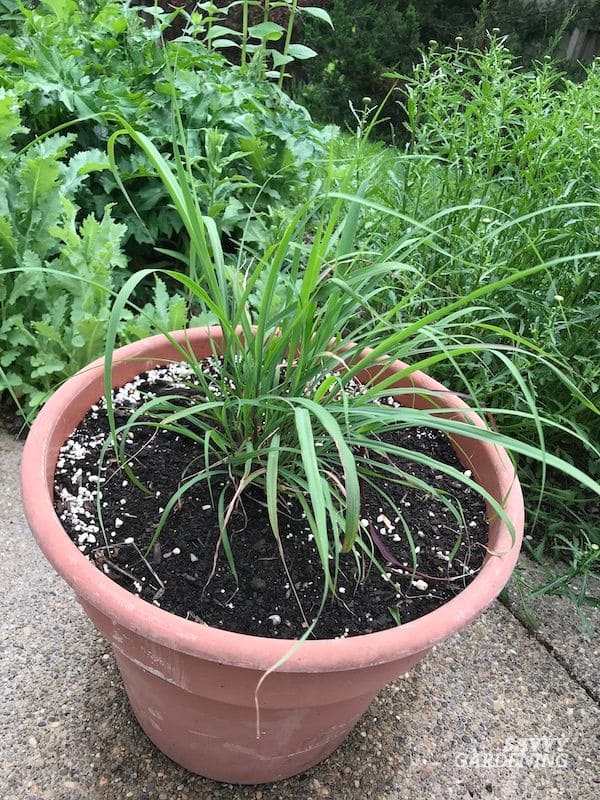
One summer, I tucked a few pots of lemongrass around the garden table — their tall, whispering blades looked elegant, and the lemony scent lifted on the breeze like a secret spell.
Thriving in full sun and rich soil, lemongrass carries natural citronella oils that flies find unbearable. Plus, a few snips into iced tea or stir-fries feels like stealing a bit of tropical sunshine.
#6. Marigold
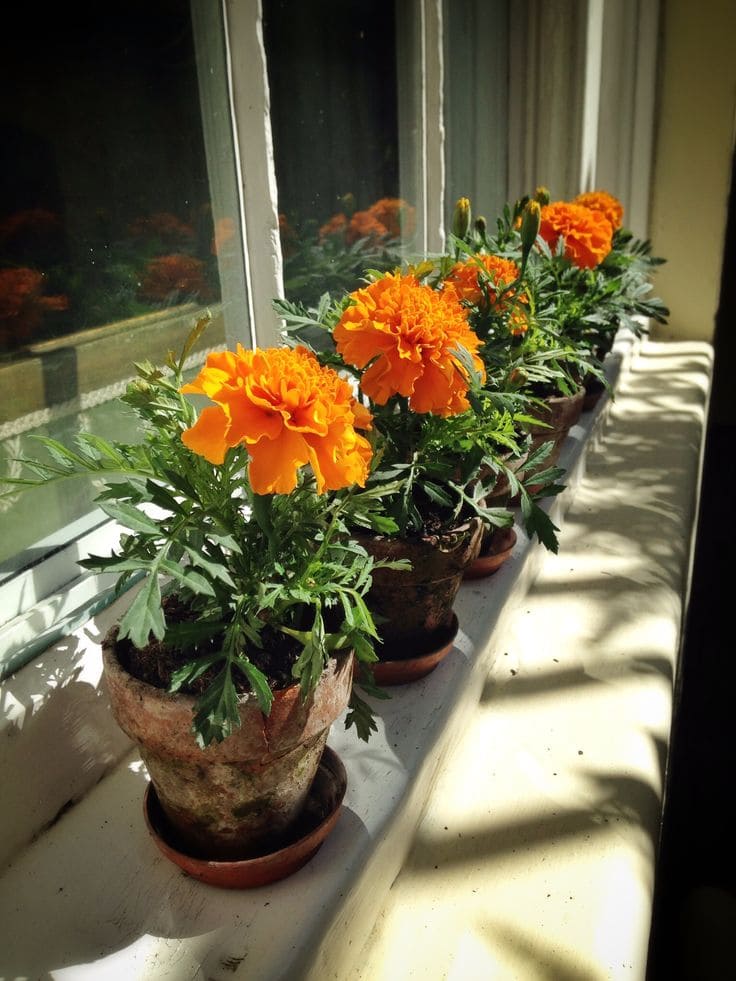
Whenever I see a marigold bed glowing under the sun, I feel like the garden is smiling back. Their vibrant yellows and oranges seem to hum with life, and as it turns out, they’re hardworking little warriors too. Flies, mosquitoes, and even beetles seem to think twice before crossing a marigold border.
I like to plant marigolds in generous clusters along vegetable beds and near doorways. Their natural chemical, pyrethrum, acts like a gentle but firm “no entry” sign to pests. Plus, they require little fuss — thriving on sunshine and occasional watering while weaving a ring of protection around your harvest.
Every year, I save some seeds from dried marigold heads, scattering them in new places for the next season. Watching the first brave seedlings emerge after a rain always feels like getting a secret handshake from nature herself.
#7. Eucalyptus
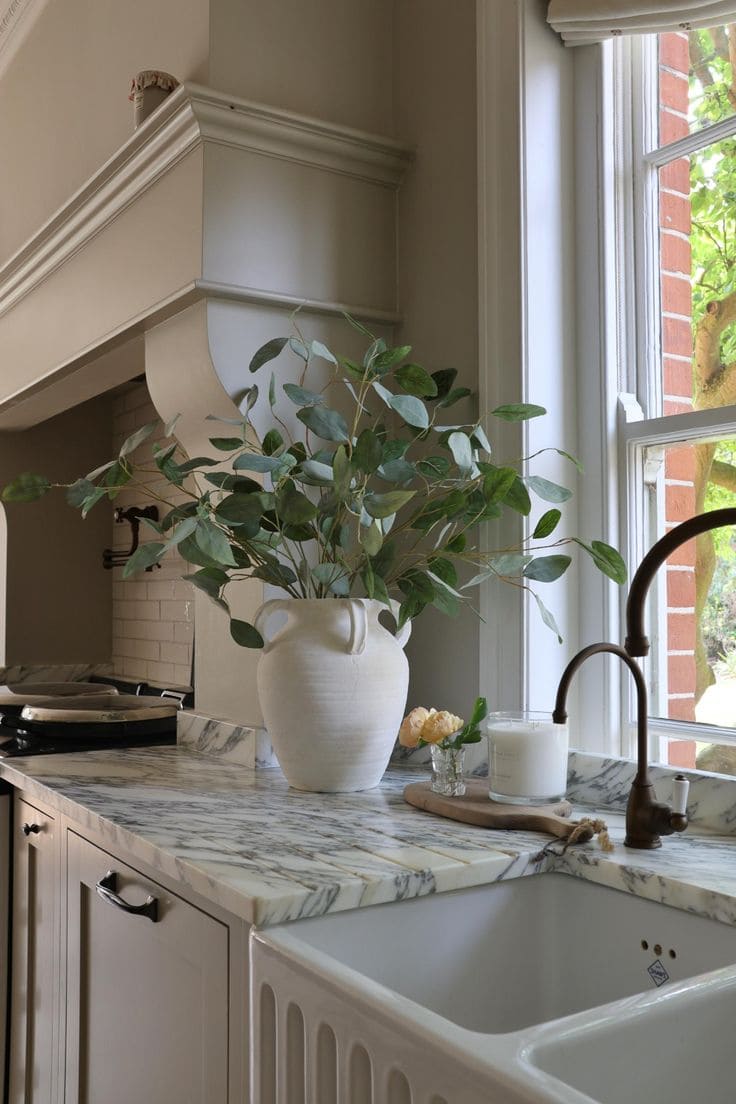
One year, a friend gifted me a tiny eucalyptus sapling in a clay pot. I kept it near my back door, where every brush of a sleeve released a crisp, clean scent that made flies hesitate and turn away.
Eucalyptus craves full sun and well-drained soil. Indoors, dried eucalyptus stems tucked into vases become effortless, beautiful guardians, filling rooms with their sharp, refreshing perfume.
#8. Catnip
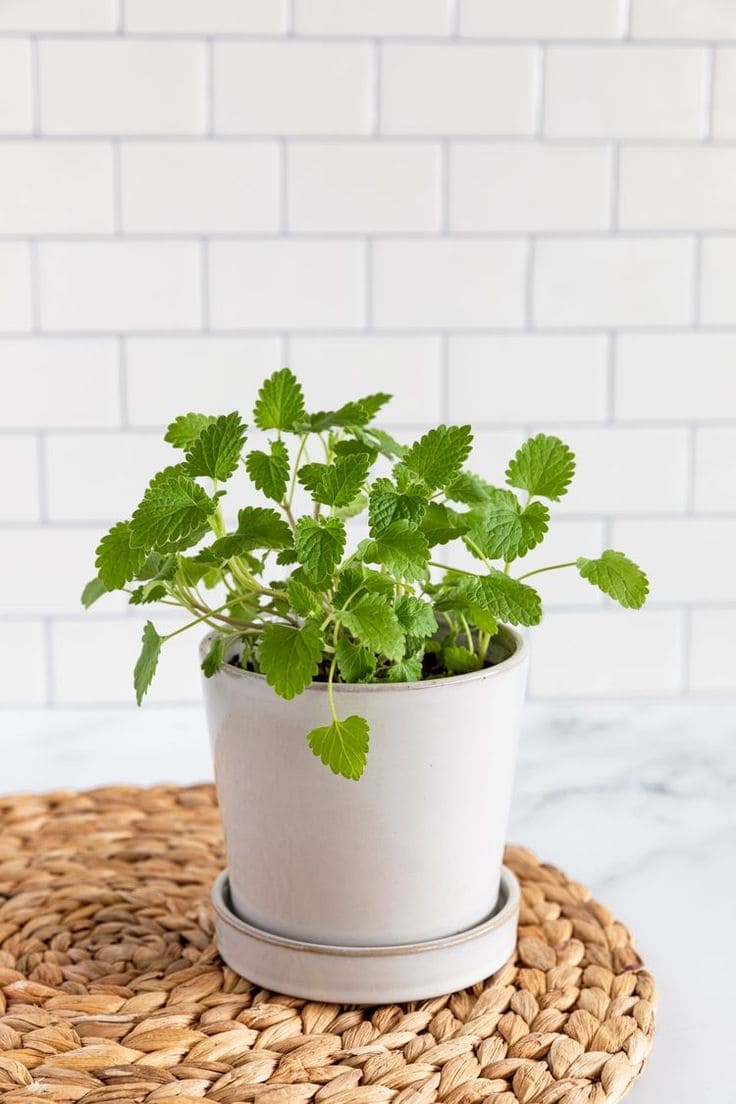
In one shady corner of my herb patch, catnip grows like a soft, leafy carpet — irresistible to cats but a strong deterrent to flies.
It thrives with little fuss in sunny spots and moist soil. A few small pots placed near doorways keep flies from sneaking indoors, though I’ve learned to expect a few feline visitors lounging lazily nearby.
#9. Bay Laurel
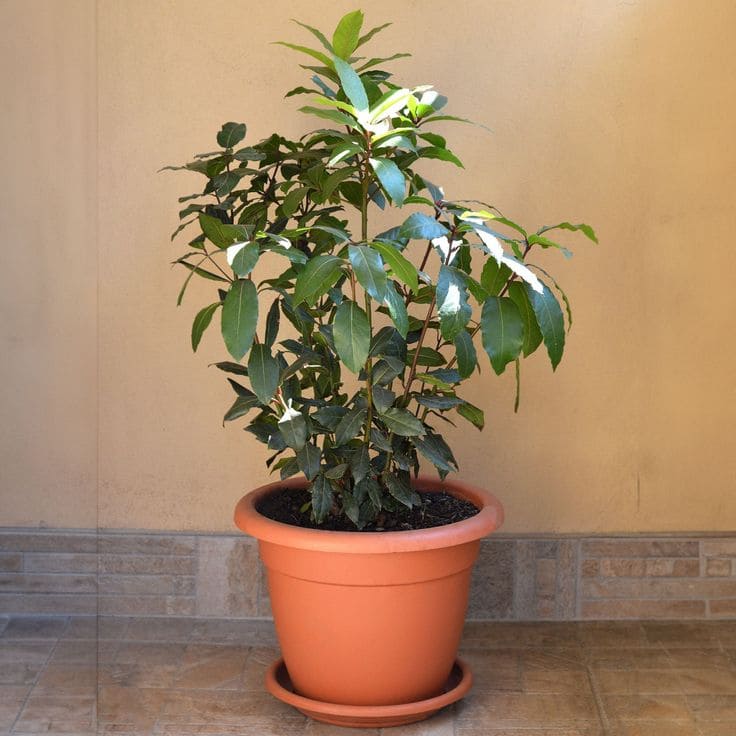
A small bay laurel tree stands proudly near my kitchen garden, its glossy green leaves catching the light and holding their own kind of quiet power.
The leaves release a subtle but potent scent that flies dislike. I often pluck a few to dry and scatter near windows, where they whisper their protective fragrance into the house while lending a cozy, herbal touch.
#10. Geranium
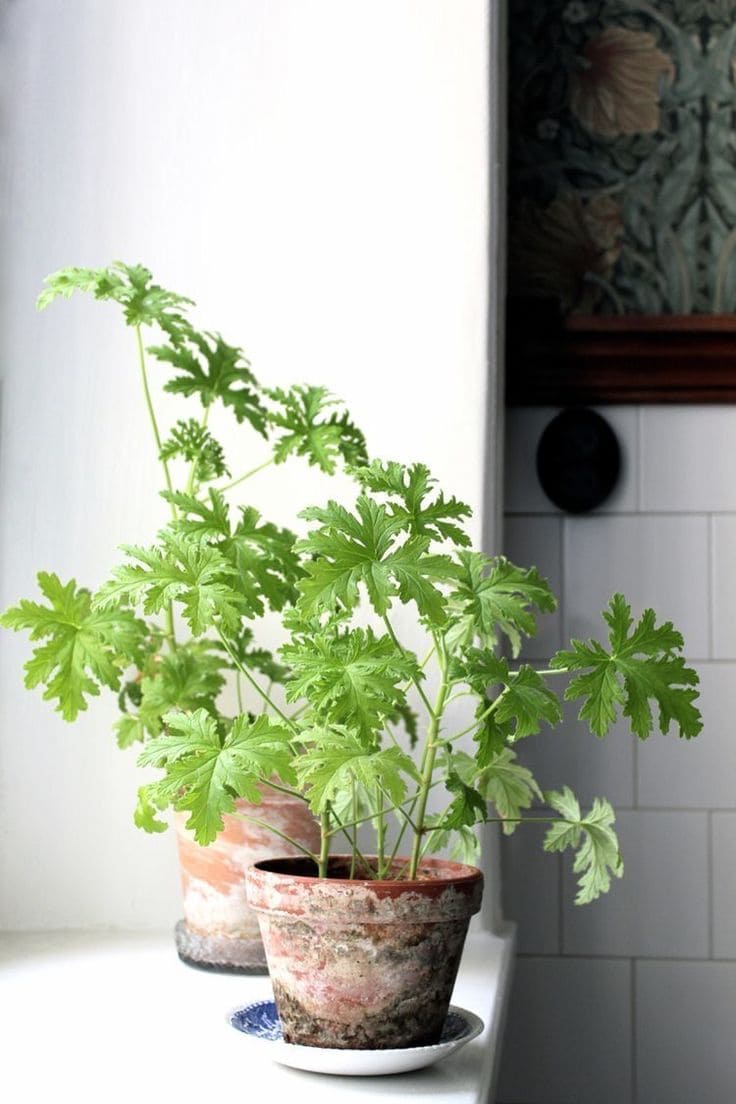
Tucked along the porch steps, my pots of scented geraniums unfurl colorful blooms and leaves that perfume the air with hints of lemon and rose.
Geraniums thrive in full sun or partial shade, needing only a little encouragement to keep flowering all season. Their lively scent confuses flies, making every gathering feel cleaner, sweeter, and blissfully bug-free.
How to Maximize the Effectiveness of Fragrant Plants
Once I began weaving fragrant plants throughout my garden, I noticed small changes right away — fewer flies hovering by the kitchen door, more lingering guests on the patio, and an air so sweet it felt almost sacred. But getting the most from these plants took a little thoughtful arranging and care.
Here’s what has truly made a difference for me:
- Place strategically: You should position plants near doors, windows, and outdoor seating areas to keep flies at bay.
- Enhance the aroma: Crushing leaves or flowers is the best way to release their essential oils, intensifying their scent.
- Combine varieties: Use multiple plants together to create a layered defense against flies while enhancing the beauty of your space.
Final Thoughts
Living with fragrant plants isn’t just about chasing flies away — it’s about surrounding yourself with scents that lift the spirit and invite peace. Every basil pot, lavender sprig, or rosemary bush becomes a small reminder that nature always has a gentler way.
These plants don’t shout for attention; they work quietly, filling the air with their unseen magic. They turn patios into retreats, kitchens into havens, and gardens into living, breathing sanctuaries.
Plant them close, care for them well, and let their scents weave calm into your days. In the end, it’s not just the flies that stay away — it’s the noise, the rush, and the clutter too. And what’s left is pure, simple beauty.
